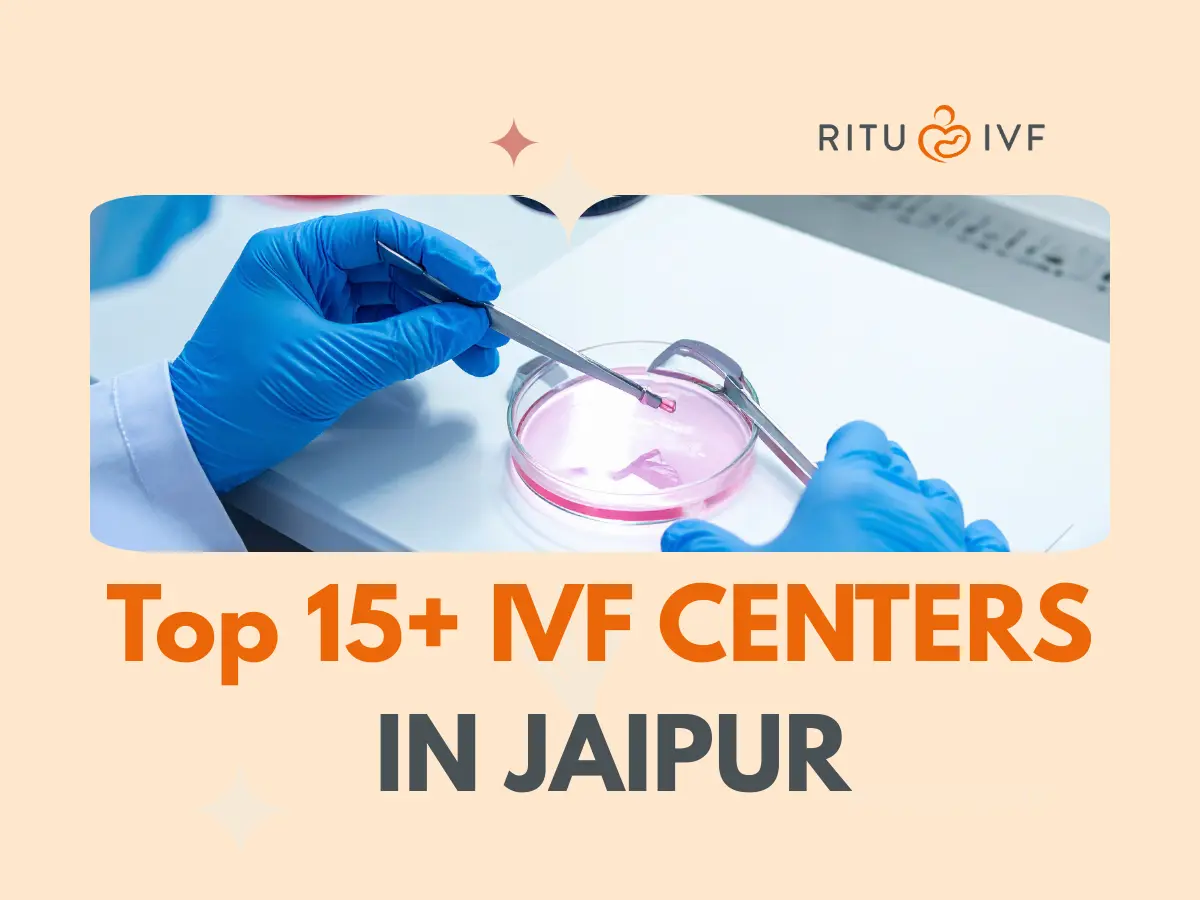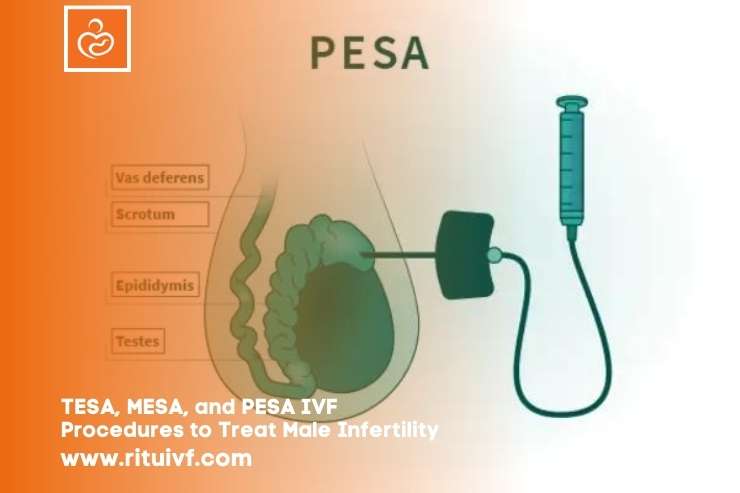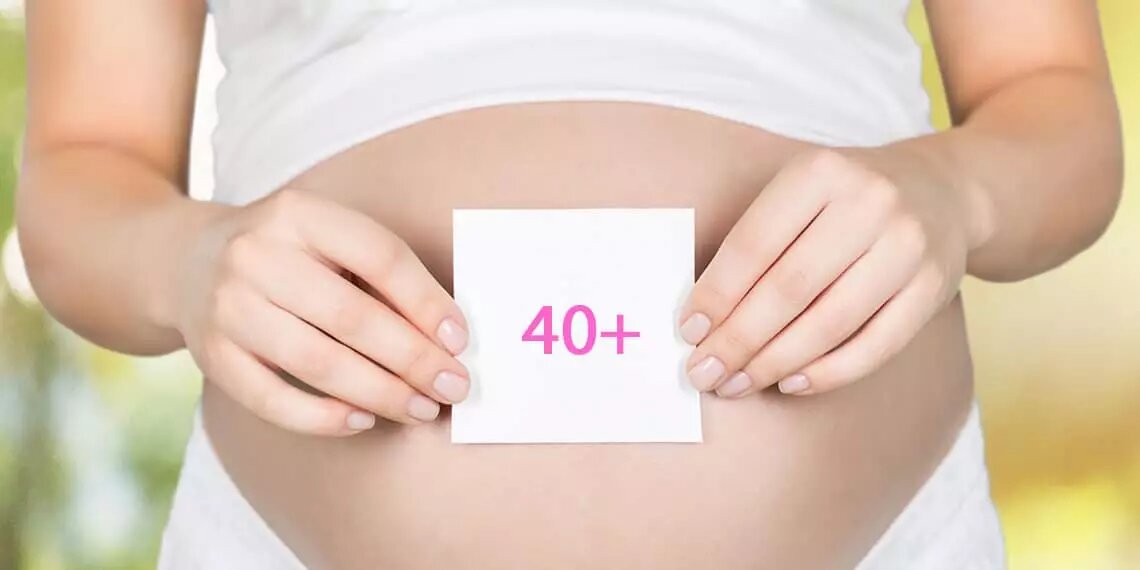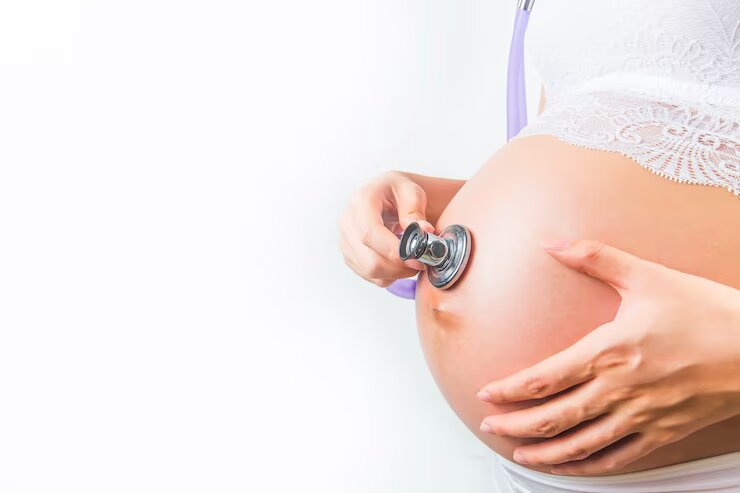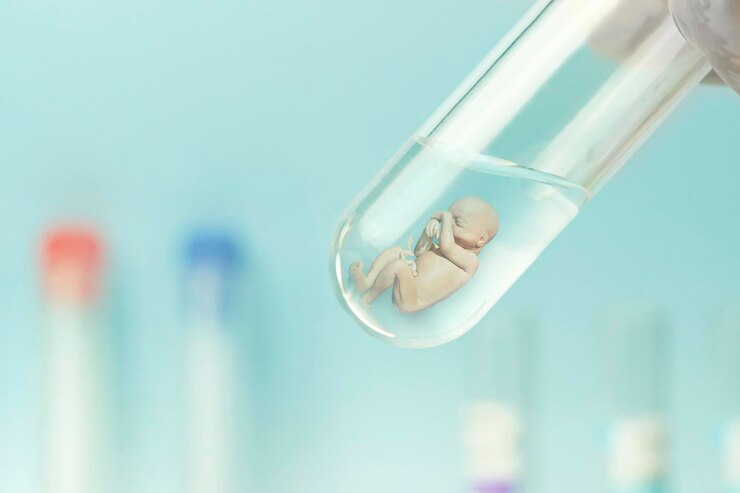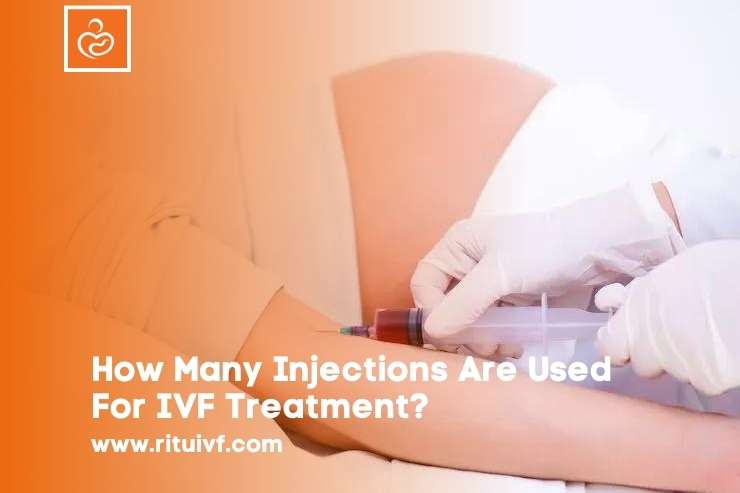Finding the Top IVF clinic in Jaipur is one of the most crucial steps for couples who dream of becoming parents. Over the years, Jaipur has developed into a leading destination for fertility treatments in Rajasthan, offering world-class healthcare facilities, highly experienced doctors, and modern reproductive technologies. From providing the cheapest IVF treatment in Jaipur to advanced procedures with high success rates, the city has options that suit every couple’s needs.
Couples searching for the Best Fertility Clinic in Jaipur can benefit from hospitals and clinics that combine affordability with excellence. Many centers are equipped with cutting-edge technologies and provide step-by-step guidance throughout the treatment. The presence of the best IVF doctors in Jaipur and highly qualified infertility specialists ensures that patients receive personalized care and support at every stage. Whether it is initial consultation, IVF cycles, or advanced fertility solutions, Jaipur has some of the most reliable choices in Rajasthan.
In this article, we have compiled a list of the Top 15+ Best Fertility Clinic in Jaipur based on their success rates, quality of treatment, patient satisfaction, and affordability. From the best infertility doctors in Jaipur to trusted centers like Jaipur Fertility Centre, couples can find the right place to start their parenthood journey. Each fertility clinic featured here focuses on delivering compassionate care, budget-friendly packages, and the latest medical procedures, ensuring that hopeful parents have access to the best possible outcomes.
With this guide, you can easily explore the leading IVF and fertility clinics in Jaipur and choose the most suitable center to fulfill your dream of parenthood.
Stages of IVF Treatment at the Top IVF Clinic in Jaipur, Rajasthan
When you choose the best IVF clinic in Jaipur Rajasthan, the treatment is performed step by step with precision and care. Each stage is guided by the top IVF doctors and infertility specialists in Jaipur, ensuring that couples receive the most effective approach for a successful pregnancy. Here are the major stages of IVF treatment:
1. Fertility Check
The IVF journey begins with a detailed fertility check. At the Best Fertility Clinic in Jaipur, doctors conduct blood tests, ultrasound scans, and medical evaluations to understand the couple’s fertility health. These tests help identify potential infertility issues and assess the quality of eggs and sperm. By spotting genetic or health problems early, the best IVF doctor in Jaipur can recommend the most effective treatment plan for a higher success rate.
2. Hormonal Medicines
To stimulate the ovaries for producing healthy eggs, the best infertility doctor in Jaipur prescribes fertility drugs and hormonal injections. These medications support egg maturation, which is carefully monitored by the infertility specialist in Jaipur. Once the eggs are ready, doctors prepare for retrieval with advanced techniques.
3. Egg Retrieval
At this stage, a fertility expert at the best IVF centre in Jaipur retrieves the matured eggs using ultrasound guidance and a fine needle. The process is minimally invasive, ensuring safety and comfort for the patient. Advanced technology allows the IVF clinic in Jaipur to collect high-quality eggs for fertilization.
4. Fertilization of Gametes
The collected eggs and sperm are combined in a lab at the top IVF center in Jaipur. In many cases, doctors use the ICSI (Intracytoplasmic Sperm Injection) technique to inseminate each egg with the sperm. Clinics like Jaipur Fertility Centre ensure the fertilization process is carried out with the highest success standards.
5. Embryo Implantation
After fertilization, embryos are monitored for growth in a controlled laboratory environment. The best fertility doctor in Jaipur selects the healthiest embryos and implants them into the female partner’s uterus using ultrasonography and a catheter. About two weeks later, the best IVF clinic in Jaipur Rajasthan confirms whether the implantation has resulted in pregnancy.
Read Also –Best Gynecologist in Jaipur: Expert Care for Every Woman’s Health Need
How to Choose the Best Fertility Clinic in Jaipur : 10 Simple Steps
Selecting the right IVF center in Jaipur is one of the most crucial decisions in your fertility journey. With numerous options available, making an informed choice requires careful consideration of multiple factors that can significantly impact your treatment success and overall experience.
1. Research Success Rates and Track Record
When evaluating any IVF fertility centre in Jaipur, start by examining their success rates across different age groups and fertility conditions. Look for centers that maintain transparent reporting and consistently deliver IVF highest success rate in Jaipur. However, remember that success rates can vary based on individual circumstances, so discuss your specific situation with potential providers.
2. Evaluate Medical Expertise and Credentials
The expertise of your medical team is paramount to successful treatment outcomes. Look for an IVF hospital in Jaipur that employs board-certified reproductive endocrinologists and experienced embryologists. Research the qualifications of the best IVF doctor in Jaipur at each facility, including their training, years of experience, and specialization areas. A skilled infertility specialist in Jaipur should have extensive experience in handling complex cases similar to yours.
3. Assess Technology and Laboratory Standards
Modern fertility treatment relies heavily on advanced technology and laboratory conditions. The best fertility clinic in Jaipur should be equipped with state-of-the-art equipment including advanced incubators, genetic testing capabilities, and modern surgical facilities. Visit the test tube baby center in Jaipur to observe their laboratory standards and technological infrastructure firsthand.
4. Consider Range of Services Offered
Choose a facility that provides comprehensive best fertility services in Jaipur under one roof. This includes not just basic IVF treatment in Jaipur, but also specialized procedures like ICSI, egg donation, surrogacy, and male fertility treatments. A full-service top fertility centre in Jaipur can adapt your treatment plan as needed without requiring referrals to other facilities.
5. Evaluate Patient Care and Support Services
The emotional aspect of fertility treatment is as important as the medical component. Look for a trusted fertility clinic in Jaipur that offers comprehensive patient support including counseling services, patient coordinators, and clear communication channels. The fertility treatment doctor and support staff should be accessible, empathetic, and responsive to your concerns throughout the treatment process.
6. Review Treatment Approaches and Personalization
Every couple’s fertility journey is unique, requiring personalized treatment approaches. The best infertility treatment center in Jaipur should conduct thorough evaluations and develop customized treatment plans rather than following a one-size-fits-all approach. Discuss how the IVF expert in Jaipur plans to tailor treatment to your specific needs and circumstances.
7. Consider Location and Accessibility
Fertility treatment often requires multiple visits over several weeks or months. Choose a conveniently located facility that’s easily accessible from your home or workplace. Consider factors like parking availability, public transportation access, and proximity to other medical facilities if additional services are needed.
8. Evaluate Cost Transparency and Financial Options
Treatment costs can be substantial, so it’s essential to work with a center that provides clear, upfront pricing information. Compare costs across multiple facilities, but remember that the cheapest option isn’t always the best value. Look for centers that offer financing options, insurance coordination, or package deals that can make treatment more affordable.
9. Read Patient Reviews and Testimonials
Patient experiences provide valuable insights into the quality of care and service at different facilities. Read online reviews, testimonials, and if possible, connect with former patients who can share their firsthand experiences. Look for patterns in feedback regarding communication, wait times, success rates, and overall satisfaction.
10. Schedule Consultations with Multiple Centers
Before making your final decision, schedule initial consultations with several potential providers. This allows you to compare treatment approaches, ask questions, and assess how comfortable you feel with each team. Pay attention to how thoroughly they explain procedures, answer your questions, and address your concerns.
Why Choose Fertility Clinics in Jaipur for Your Infertility Journey?
Jaipur has emerged as a leading destination for fertility treatment, earning the trust of thousands of couples through exceptional care and proven results. The city’s reputation as a reliable hub for reproductive healthcare stems from several key factors that set its facilities apart from others across India.
Expert Specialists
The foundation of any successful Fertility center in Jaipur lies in its medical expertise. The city attracts some of India’s most qualified and experienced infertility specialists in Jaipur, many of whom have trained at prestigious international institutions. These IVF experts in Jaipur bring years of specialized experience in reproductive endocrinology, advanced surgical techniques, and complex case management.
Each best IVF doctor in Jaipur typically holds advanced certifications in reproductive medicine and maintains active participation in continuing medical education. Many specialists have contributed to research publications and participate in international fertility conferences, ensuring they stay updated with the latest treatment protocols and breakthrough therapies. This level of expertise gives patients confidence that they’re receiving care from truly qualified professionals who understand the nuances of fertility treatment.
High Success Rates
One of the most compelling reasons couples choose a trusted fertility clinic in Jaipur is the consistently impressive success rates achieved by the city’s fertility centers. Many facilities report IVF highest success rate in Jaipur, with pregnancy rates that rival or exceed international standards. These success rates are maintained across different age groups and various fertility conditions, demonstrating the comprehensive expertise available in the city.
The best fertility clinic in Jaipur facilities achieve these results through meticulous patient selection, personalized treatment protocols, and advanced laboratory techniques. Success rates are transparently shared with patients, allowing them to make informed decisions about their treatment options. Regular audits and quality assessments ensure that these high standards are consistently maintained.
Cutting-Edge Technology
Modern fertility treatment requires sophisticated technology, and Jaipur’s IVF fertility centres are equipped with state-of-the-art equipment that matches global standards. From advanced embryo culture systems to genetic testing capabilities, each IVF hospital in Jaipur invests significantly in maintaining cutting-edge infrastructure.
The test tube baby centers in Jaipur feature controlled environment laboratories with advanced incubation systems, time-lapse embryo monitoring, and cryopreservation facilities. Many centers also offer preimplantation genetic testing (PGT), which helps identify genetically normal embryos before transfer. This technological sophistication directly contributes to improved treatment outcomes and patient safety.
Patient Testimonials
The most authentic measure of a top fertility centre in Jaipur is the experiences shared by former patients. Jaipur’s fertility clinics have helped thousands of couples achieve their dream of parenthood, and their testimonials speak volumes about the quality of care received. These real-life success stories provide hope and confidence to new patients beginning their fertility journey.
Patient testimonials consistently highlight not just successful outcomes, but also the compassionate care, clear communication, and emotional support received throughout treatment. Many couples specifically mention how the fertility treatment doctors took time to explain procedures, address concerns, and provide personalized attention during what can be an emotionally challenging time.
Supportive Care & Counseling
Fertility treatment involves significant emotional and psychological challenges, and the best infertility treatment centers in Jaipur recognize the importance of holistic patient support. Most facilities offer comprehensive counseling services, support groups, and patient education programs to help couples navigate their fertility journey with confidence.
Professional counselors work alongside medical teams to address the emotional aspects of infertility treatment. These services include pre-treatment counseling, ongoing emotional support during treatment cycles, and post-treatment guidance regardless of outcomes. This comprehensive approach ensures that patients receive not just medical treatment, but also the emotional support necessary for their well-being.
Transparent Pricing
Financial transparency is a hallmark of reputable fertility centers in Jaipur. The best fertility services in Jaipur are offered with clear, upfront pricing that helps couples plan their treatment without hidden surprises. Most centers provide detailed cost breakdowns that include all aspects of treatment, from initial consultations to laboratory procedures.
Many facilities offer flexible payment options, including EMI plans and package deals for multiple treatment cycles. This transparency and flexibility make quality IVF treatment in Jaipur accessible to couples from various economic backgrounds, ensuring that financial constraints don’t become barriers to receiving excellent care.
Certifications & Accreditations
The credibility of any medical facility is reinforced by proper certifications and accreditations from relevant regulatory bodies. Jaipur’s leading fertility centers maintain accreditations from organizations such as the National Accreditation Board for Hospitals (NABH), the International Organization for Standardization (ISO), and specialized fertility organizations.
These certifications ensure that facilities adhere to strict quality standards in patient care, laboratory procedures, infection control, and documentation practices. Regular audits and renewals of these certifications demonstrate ongoing commitment to maintaining the highest standards of medical care and patient safety.
The combination of these factors has established Jaipur as a trusted destination for fertility treatment, attracting patients not just from Rajasthan, but from across India and even international locations. The city’s fertility centers continue to evolve and improve, ensuring that couples receive the most advanced and compassionate care available in reproductive medicine.
Comprehensive List of Top 15+ Best Fertility Clinics in Jaipur
1. Ritu IVF Fertility Centre
Ritu IVF is a prominent ivf center in jaipur that prides itself on providing personalized care plans tailored to each patient’s unique needs. The clinic boasts a state-of-the-art facility equipped with the latest technology to ensure optimal outcomes. With over 13 years of experience and more than 5,000 successful births, the center reports a specific and transparent success ratio of approximately 55% for women under the age of 35. Patients consistently praise the clinic’s founder, Dr. Ritu Agarwal, for her humble, patient, and caring nature, noting that she makes dreams come true with a personal touch. The center offers a range of services including IVF, IUI, and egg freezing.
2. Indira IVF Fertility Centre (Vaishali Nagar)
As one of India’s largest chains of fertility clinics, Indira IVF has established itself as a trusted and reliable IVF Hospital in jaipur. With a vast network of over 165 centers and more than 340 IVF doctors across the country, it has facilitated over 1.75 lakh IVF pregnancies. The clinic reports a success rate of over 74% and emphasizes the use of state-of-the-art technology, including advanced labs with electronic witness systems. Indira IVF makes a significant effort to provide accessible and affordable care, offering zero-interest EMI options to ease the financial burden of IVF Treatment in Jaipur. Patient reviews frequently highlight the cooperative, friendly, and supportive nature of the doctors and staff, with many sharing stories of successful pregnancies after years of trying.
3. Zivia IVF Centre (Vaishali Nagar)
Zivia IVF is a top-rated fertility clinic known for its exceptional success rates and expert team, which is mentored by the renowned Dr. Nayana Patel. The clinic reports a high success rate of over 73% in three cycles and has been part of over 20,000 successful deliveries and 1,600 surrogate babies. The team of specialists, including Dr. Priya Agarwal, Dr. Richa Ahluwalia, and Dr. Sapna Choudhary, are highly qualified and have received numerous awards and accolades for their work. Zivia offers a wide range of services, such as IVF, IUI, ICSI, and fertility-enhancing surgeries, all performed with “best-in-class” equipment to ensure high-quality embryos. Patient testimonials praise the clinic for providing proper guidance and successful outcomes at a budget-controlled cost.
4. Birla Fertility & IVF Center
Birla Fertility & IVF is a part of the esteemed CK Birla Group, known for quality healthcare. This modern IVF center in Jaipur combines cutting-edge technology with a patient-first philosophy. Birla IVF offers a full spectrum of fertility services, including IVF, IUI, ICSI, fertility preservation, and diagnostics. The center prides itself on personalized treatment plans to maximize success rates. Experienced infertility specialists (including gynecologists and embryologists) guide each couple through the process with transparency and empathy. Birla Fertility’s clinic in Jaipur is praised for its world-class lab, comfortable environment, and holistic approach. By bringing the best fertility services to Jaipur, Birla IVF Center has quickly become one of the best fertility clinics in Jaipur for those seeking reliable and result-oriented fertility care.
5. Neelkanth IVF & Fertility Centre
Neelkanth IVF stands out as a reliable and ethical fertility center that aims to “maximize the results and minimize the cost”. It claims to be the first NABH-certified IVF center in Jaipur, a testament to its commitment to quality and safety. With over 24 years of experience and having helped over 25,000 couples, the center has a strong reputation in the community. It offers world-class yet affordable IVF treatment with no hidden charges and provides a holistic approach to care. Patients frequently give positive feedback, praising the kind and helpful staff and the excellent care received. Testimonials mention successful outcomes, including positive results on the first cycle and the birth of twin babies, even after 30 years of marriage.
6. ASMEE IVF & Fetal Medicine Clinic
ASMEE Clinic is a progressive, hi-tech IVF center in Jaipur offering successful programmes in infertility, assisted reproductive technology, gynaecology, fetal medicine, and diagnostics. Under the guidance of Dr. Monica Chetani (a leading infertility and fetal medicine specialist), ASMEE has become a trusted fertility clinic in Jaipur for comprehensive care. The clinic provides personalized IVF treatment, IUI, ICSI, fertility diagnostics, and high-risk pregnancy management – all under one roof. Patients appreciate the clinic’s modern facilities and the compassionate support staff. ASMEE’s integrated approach (combining reproductive medicine with fetal medicine and gynecology) ensures that women receive continuous care from conception through pregnancy. For those looking for a one-stop IVF hospital in Jaipur with a focus on both infertility treatment and maternal-fetal health, ASMEE IVF is an excellent choice.
7. Nishant Fertility Centre
Nishant Fertility Centre is a renowned IVF center in Jaipur focusing on both male and female infertility solutions. Headed by Dr. Nishant Dixit, NFC has been helping couples conceive for over a decade. The center offers advanced IVF, IUI, and ICSI treatments, and is equipped with a cutting-edge lab for procedures like embryo culture and cryopreservation. Nishant IVF is known for its patient education and transparent approach – they guide couples through every step of the IVF process with clarity and empathy. The clinic also specializes in male infertility, with treatments for low sperm count and other male factors, making it a comprehensive fertility treatment center in Jaipur. With friendly staff, high standards of hygiene, and individualized care, Nishant Fertility Centre has earned its reputation as one of the best infertility treatment centers in Jaipur.
8. DIVA Hospital & IVF Centre
DIVA Hospital is a multi-specialty women’s hospital in Jaipur that also houses a dedicated IVF and fertility center. With experienced doctors like Dr. Shikha Gupta leading the fertility unit, DIVA provides a wide range of reproductive services, including IVF, IUI, and gynecological surgeries. The hospital is known for bringing the best fertility services to Jaipur in a comfortable, patient-friendly setting. It offers 24×7 support and all modern facilities (ultrasound, andrology lab, etc.) under one roof. DIVA’s IVF Centre emphasizes individualized protocols and thorough infertility workups, ensuring each couple gets a tailored treatment. The center’s holistic approach to women’s health – from fertility treatments to obstetrics and even urology – makes it a unique and trusted fertility clinic in Jaipur for comprehensive care.
9. ISHWA IVF Center
ISHWA IVF Center in Jaipur is a newer entrant in Jaipur’s fertility landscape, quickly gaining recognition for its advanced treatments and patient satisfaction. Staffed by a team of IVF experts (like Dr. Urmila Sharma and Dr. Zeepee Godha), ISHWA offers services such as IVF, ICSI, IUI, egg freezing, and reproductive surgeries. The clinic stands out for its modern infrastructure and strict adherence to international protocols, which contribute to high success rates. ISHWA IVF focuses on personalized care – from detailed fertility assessments to counseling – ensuring patients feel supported throughout their journey. Its commitment to quality and ethics has made ISHWA one of the best fertility clinics in Jaipur for couples looking for a trusted fertility clinic in Jaipur with a fresh, patient-centric approach.
10. Vansh IVF Center
Vansh IVF is an advanced fertility and women’s wellness IVF center in Jaipur known for its personalized care. Led by Dr. Suchika Mangal (a prominent IVF specialist), Vansh IVF has a team of skilled embryologists and fertility treatment doctors providing treatments for both female and male infertility. Services include IVF/ICSI, IUI, egg/sperm donation, surrogacy, and specialized clinics for PCOS and endometriosis. The center prides itself on being accessible and affordable, with a focus on patient comfort. State-of-the-art labs and evidence-based practices at Vansh result in commendable success rates. The friendly environment and the guidance of one of the best IVF doctors in Jaipur make Vansh IVF a top choice for many couples. It’s often regarded as a top-rated fertility center in Jaipur offering some of the top fertility treatments in Jaipur for both men and women.
11. Vasundhara Hospital & IVF Center
Established in 1996, Vasundhara Hospital & Fertility Research Centre is one of the oldest and most reputed IVF centers in Jaipur. With nearly 28+ years of expertise, Vasundhara has been providing cost-effective IVF treatments while maintaining excellent success rates. This center has pioneered fertility care in the region – achieving over 27,500 IVF cycles and 100,000+ successful pregnancies to date. Vasundhara IVF offers the full gamut of services: IVF, IUI, ICSI, IMSI, PICSI, and advanced male infertility treatments, all administered by a team of veteran doctors. Patients benefit from the center’s evidence-based approach and personalized treatment protocols. The long legacy, high patient satisfaction, and continuous innovation make Vasundhara a top fertility center in Jaipur. It’s often recommended for those seeking budget-friendly IVF treatment with high success rates without compromising on quality of care.
12. Indo IVF Test Tube Baby Centre
Indo IVF is a dedicated test tube baby center in Jaipur known for its affordability and remarkable outcomes. Established in 2009, Indo IVF has expanded its reach across Rajasthan with the mission of making IVF accessible. The Jaipur center offers IVF at highly competitive costs (IVF cycles starting around ₹80,000), along with treatments like IUI, ICSI, laser-assisted hatching, and surrogacy. Indo IVF gained acclaim after successfully helping a 70-year-old woman conceive, showcasing its medical expertise. The clinic is led by experienced infertility specialists (Dr. Amrapali Dixit, Dr. Savita Gupta, Dr. Geetanjali Garg) and was recognized with a Healthcare Excellence Award in 2015. Despite being budget-friendly, Indo IVF maintains strong success rates and has over 20,000 happy patients. For couples looking for budget-friendly IVF treatment with high success rates, Indo IVF is a top pick – combining low-cost treatment with skilled care.
13. Jain Fertility & Mother Care Hospital
Jain Fertility & Mother Care Hospital is a prominent name in Jaipur’s fertility scene, combining infertility treatment with comprehensive maternal care. Spread over a 14,000 sq. ft. facility, this hospital offers state-of-the-art IVF lab, operation theaters, NICU, and embryology lab within its infertility. Headed by Dr. Gunjan Jain, an IVF specialist with decades of experience, Jain Fertility Hospital has been at the forefront of fertility care and even achieved the rare feat of helping a 60-year-old woman conceive and deliver successfully. The hospital provides all infertility solutions (IVF, ICSI, IUI, laparoscopy) alongside obstetric care – giving patients a seamless journey from conception to childbirth. Known for its patient-centric approach and high ethical standards, Jain Fertility & Mother Care is often hailed as a trusted fertility clinic in Jaipur and one of the best places for couples who want fertility treatment in a full-service hospital setting.
14. Jeevan Jyoti Fertility Hospital
Jeevan Jyoti Fertility Hospital is a specialized center providing advanced infertility treatments with a personal touch. Located in Vaishali Nagar, it is led by senior gynecologists and IVF experts such as Dr. Hemant Chakrawarti. The hospital offers services like IVF, IUI, ICSI, and endoscopic fertility surgeries, catering to a variety of infertility issues. Couples appreciate Jeevan Jyoti for its caring staff, good infrastructure, and the approachability of its doctors. Being a smaller dedicated fertility hospital, it often boasts shorter wait times and a more intimate, supportive environment. Jeevan Jyoti emphasizes quality over quantity – ensuring each patient gets ample time for consultation and individualized treatment plans. With steady success rates and positive patient testimonials, it stands out as one of the best infertility treatment centers in Jaipur for those seeking a homely yet professional setting to undergo fertility treatment.
15.Srishti Hospital and IVF Centre
Srishti Hospital & IVF Centre is a reputed fertility clinic in Jaipur led by Dr. Mamta Gupta, who has over 21 years of experience in gynecology and IVF. Srishti has been instrumental in bringing happiness to countless families, especially in the northern parts of Jaipur. The center provides a range of fertility treatments including IVF, IUI, and fertility-enhancing surgeries, along with antenatal and maternity care. Srishti Hospital is known for its patient education, honest advice, and supportive team. They are adept at handling complex infertility cases and high-risk pregnancies, which makes them a go-to clinic for comprehensive fertility care in Jaipur. With two branches (Vidyadhar Nagar and Shastri Nagar), Srishti ensures accessibility. The emphasis on ethical practice and reasonable costs further cements its place as a trusted fertility clinic in Jaipur for couples from all walks of life.
16. Anmol Fertility Clinic
Anmol Fertility Clinic is led by Dr. Sapna Basandani, an infertility specialist with over two decades of experience. True to its name “Anmol” (precious), the clinic offers precious hope to infertile couples through a range of advanced treatments: IVF, IUI, ICSI, surrogacy, and laparoscopy. Anmol Fertility is recognized for its personalized care and meticulous attention to each case. Dr. Basandani and her team guide patients with empathy, making complex treatments feel easier. The clinic also has a strong focus on maintaining high lab standards and continuously updates its technology (for example, time-lapse embryo monitoring). Located in Tilak Nagar, it’s a convenient choice for residents of central Jaipur. With a track record of healthy IVF babies and testimonials of happy parents, Anmol Fertility Clinic shines as one of the best fertility clinics in Jaipur, especially for those seeking a smaller center with a dedicated personal touch.
17.Shekhawati IVF Centre
Shekhawati IVF Centre is a super-specialty fertility hospital with a state-of-the-art IVF lab and operation theater facilities. It provides all treatments related to women’s health and infertility under one roof. The center offers standard fertility treatments (IVF, ICSI, IUI, donor programs) and is staffed by experienced doctors like Dr. Renu Jain (a renowned IVF specialist). Shekhawati IVF is known for its balanced approach – blending technology with compassionate care. The team places strong emphasis on patient counseling, ensuring couples understand each step of their treatment. As a part of a larger hospital group, Shekhawati IVF also provides the reassurance of multi-disciplinary support during complications. Its commitment to quality and patient safety, along with a steadily growing success record, make Shekhawati IVF Centre a trusted fertility clinic in Jaipur for many families.
Read Also – 10 Best Foods to Increase Sperm Count Naturally in 2025
Key Considerations for Choosing the Best Fertility Clinics in Jaipur
Selecting an Infertility specialist in Jaipur requires careful consideration of several factors beyond just success rates. Look for a top-rated fertility center/clinic in Jaipur that offers:
- Transparency: The clinic should be open about how it calculates success rates (live birth rate vs. pregnancy rate) and provide a clear, itemized breakdown of costs.
- Expertise: Look for a clinic with a team of highly qualified doctors and embryologists who have extensive experience and are involved in academic research and publications.
- Technology: The presence of advanced technology, such as Electronic Witnessing Systems and Embryoscopes, can indicate a clinic’s commitment to quality and error prevention.
- Patient-Centric Care: A clinic’s staff and doctors should be compassionate, supportive, and communicative, as the emotional well-being of patients is crucial to a successful journey.
Conclusion
Jaipur’s emergence as a hub for fertility care offers a wealth of options for prospective parents. From the expansive network of a national brand to the personalized touch of a specialized local IVF center in Jaipur, there is a clinic suited for every need. The key to a successful journey is not just finding a clinic with the IVF highest success rate in jaipur, but one that aligns with your priorities—be they technical expertise, emotional support, or financial accessibility. By doing your research, asking the right questions, and trusting your instincts, you can find a partner to guide you toward the fulfillment of your dream of parenthood.
Frequently Asked Questions (FAQs)
1. How do I choose the best IVF center in Jaipur?
To choose the best IVF center in Jaipur, consider factors like success rates, the experience of fertility doctors, advanced technology, patient reviews, and cost transparency. Visiting the clinic, meeting the doctor, and understanding their treatment approach will help you make an informed decision.
2. What is the average IVF success rate in Jaipur?
The IVF success rate in Jaipur varies depending on age, health, and clinic expertise. For women under 35, success rates often range between 50–70% per cycle, while for women over 35, rates gradually decline. Always discuss your individual prognosis with the IVF doctor.
3. How much does IVF treatment cost in Jaipur?
The Cost of IVF treatment in Jaipur generally ranges from ₹80,000 to ₹2,50,000 per cycle. This depends on the clinic, procedures (ICSI, genetic testing, freezing), and medications. Many clinics also provide EMI or package options to make the treatment more affordable.
4. Which IVF center in Jaipur has the highest success rate?
Several clinics report high success rates, including Ritu IVF, Indira IVF, and Neelkanth IVF. However, success rates depend on patient-specific factors like age, ovarian reserve, and sperm quality, so it’s best to compare statistics relevant to your case.
5. Who are some of the best IVF doctors in Jaipur?
Some of the top IVF doctors in Jaipur include Dr. Ritu Agarwal (Ritu IVF), Dr. Simi Sood (Neelkanth IVF), Dr. Gunjan Jain (Jain Fertility Hospital), Dr. Nishant Dixit (Nishant Fertility Centre), and Dr. Sapna Basandani (Anmol Fertility Clinic).
6. Is the IVF procedure painful?
Most patients experience little discomfort during IVF. Egg retrieval is done under mild sedation, while embryo transfer is simple and painless, similar to a Pap smear.
7. How long does one IVF cycle take?
A typical IVF cycle in Jaipur takes about 4–6 weeks, from consultation and ovarian stimulation to egg retrieval, fertilization, embryo transfer, and finally a pregnancy test.
8. What are the common side effects of IVF treatment?
Some women may experience mild side effects such as bloating, cramping, breast tenderness, or mood swings due to fertility medications. These symptoms are temporary and manageable.
9. Does age affect IVF success rates?
Yes, age is one of the biggest factors influencing IVF success. Women under 35 have the highest success rates, while success gradually declines with age due to a reduction in egg quality and quantity.
10. Do IVF clinics in Jaipur provide support beyond medical treatment?
Yes, most fertility clinics in Jaipur also offer counseling, nutritional guidance, stress management programs, and support groups to help patients through the emotional aspects of treatment.
